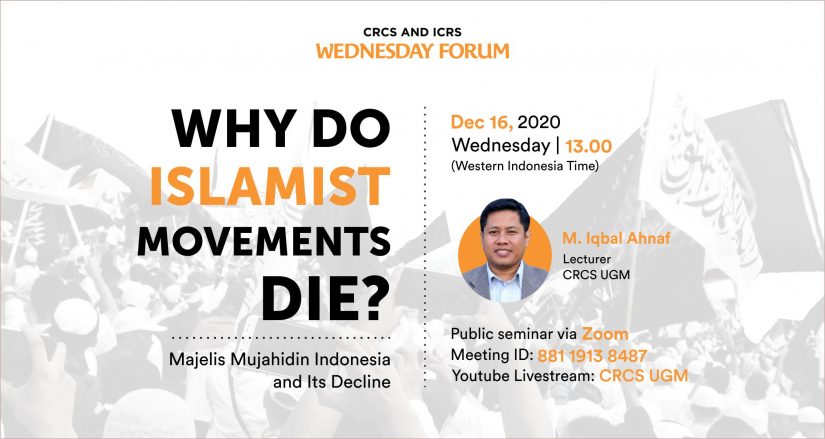
Why do Islamist movements die?: Majelis Mujahidin Indonesia and its decline
Wednesday Forum – 16 Dec 2020
The recent rise of Islamist mobilization in Indonesia has strengthened the doubt about the future of the long-established civil Islam in Indonesia. Some have suggested that the 212 rallies represent the accumulation of decades of successful Islamist mobilization in the country. This point of view anticipates an Islamist discourse overcoming the long-standing dominance of moderate Islam in Indonesia. While the potential expansion of Islamist groups, like Salafism, Muslim Brotherhood and Hizbut Tahrir, should not be underestimated, such a focus overlooks the trend of decline that a number of Islamist groups have experienced. Based on my recent contribution to Routledge’s Series of Politics in Asia, I will discuss the decline of Majelis Mujahidin Indonesia. It suggests that a combination of state repression and internal movement dynamic have brought the movement onto the brink of collapse.
Mohammad Iqbal Ahnaf earned his PhD from Victoria University of Wellington, New Zealand, in 2011. He is a faculty member at the Center for Religious and Cross-cultural Studies (CRCS), Universitas Gadjah Mada. He regularly teaches courses on religion, violence and peacebuilding. He has been writing on Hizbut Tahrir and other political Islamic movements and on religious extremism.
Look at the full poster of this event here.

